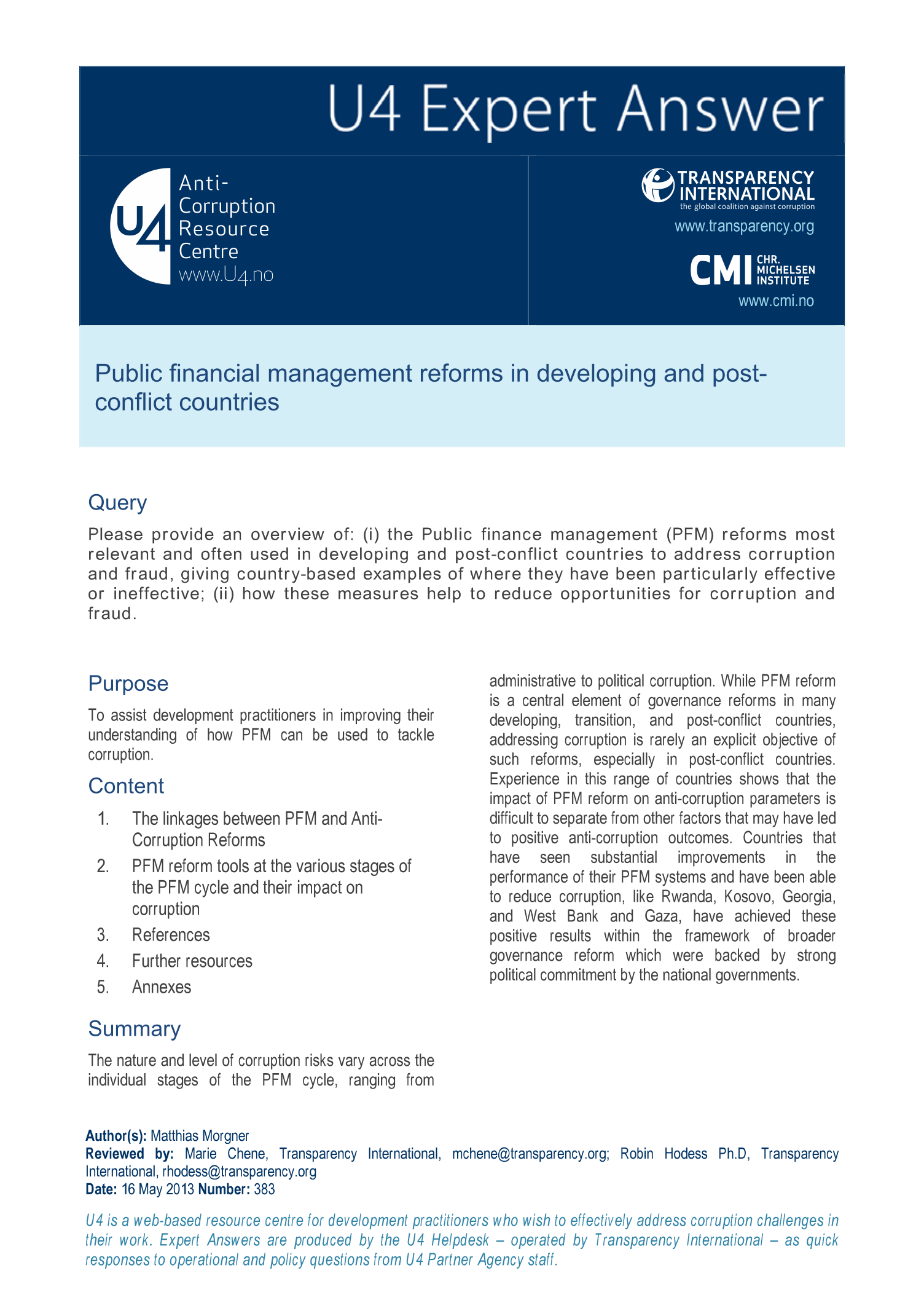U4 Helpdesk Answer
Public financial management reforms in developing and post-conflict countries
The nature and level of corruption risks vary across the individual stages of the PFM cycle, ranging from administrative to political corruption. While PFM reform is a central element of governance reforms in many developing, transition, and post-conflict countries, addressing corruption is rarely an explicit objective of such reforms, especially in post-conflict countries. Experience in this range of countries shows that the impact of PFM reform on anti-corruption parameters is difficult to separate from other factors that may have led to positive anti-corruption outcomes. Countries that have seen substantial improvements in the performance of their PFM systems and have been able to reduce corruption, like Rwanda, Kosovo, Georgia, and West Bank and Gaza, have achieved these positive results within the framework of broader governance reform which were backed by strong political commitment by the national governments.

Cite this publication
Morgner, M.; (2013) Public financial management reforms in developing and post-conflict countries. Bergen: U4 Anti-Corruption Resource Centre, Chr. Michelsen Institute (U4 Helpdesk Answer null)
Disclaimer
All views in this text are the author(s)’, and may differ from the U4 partner agencies’ policies.
This work is licenced under a Creative Commons Attribution-NonCommercial-NoDerivatives 4.0 International licence (CC BY-NC-ND 4.0)


